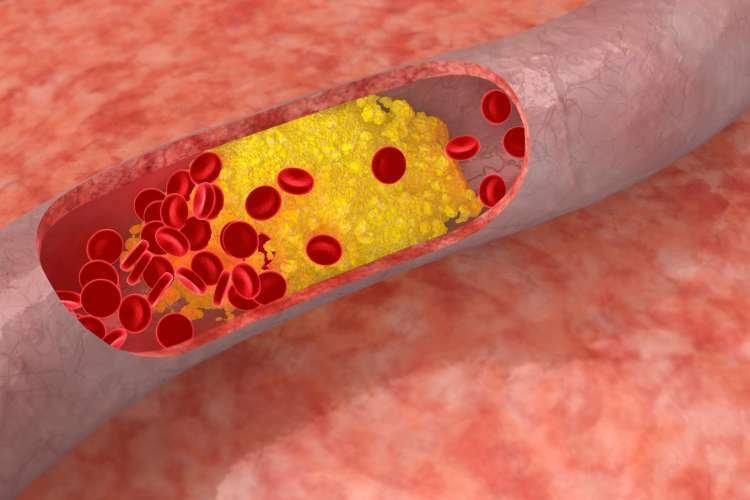In the delicate realm of heart health, where knowledge often stands as a shield against future battles, a surprising chasm emerges. Many survivors of heart attacks or strokes, those who have already danced with destiny and emerged triumphant, still find themselves at sea when it comes to the nuances of “bad cholesterol” or the mysterious dance of their LDL levels.
Imagine this: you’ve weathered a storm, survived a heart attack or a stroke, and yet, as the dust settles, a fog of uncertainty lingers. It’s a startling revelation that the term “bad cholesterol” remains a stranger to the minds of 70% of these survivors. They stand on the shores of recovery, unaware that their LDL cholesterol is often cast as the villain in this story of cardiovascular health.
Now, let’s delve into the heart of the matter. A symphony of data, gathered through a meticulous survey orchestrated by the Harris Poll on behalf of the American Heart Association (AHA), paints a vivid portrait. Just shy of half the survivors, warriors who have stared down the barrel of heart attacks and strokes, remain oblivious to their LDL levels. This, my friends, is no trivial detail. It’s a blind spot in their defense against potential future adversaries.
Picture this: a May breeze rustles through the hearts of 3,000 heart disease patients across the United States. The survey’s canvas reveals that an overwhelming 75% of those who’ve battled heart attacks and strokes are grappling with high cholesterol. It’s a silent battlefield, where invisible forces are at play, and knowing your numbers becomes akin to wielding a sword of empowerment.
In the grand tapestry of this narrative, a notable player enters the scene: Amgen. The architects of blockbuster and next-gen cholesterol treatment Repatha have seized these revelations with unwavering intent. They unfurl the sails of a fresh initiative, bearing the AHA’s emblem. “Lower Your LDL Cholesterol Now” emerges as a clarion call, a rally for hearts that have dared to endure and persist.
“At the American Heart Association, we recommend that all adults 20 or older should have their cholesterol checked every 4 to 6 years as long as their risk remains low. After age 40, your health care professional will also want to use an equation to calculate your 10-year risk of having a heart attack or stroke. People who have had a prior heart attack or stroke may need their cholesterol checked more often. This is very much a case where knowledge is power. The more you know, the more you can do to decrease your risk of heart attack and stroke in the future.”
– Donald M. Lloyd-Jones, M.D., Sc.M., FAHA, past volunteer president of the American Heart Association and chair of the department of preventive medicine, the Eileen M. Foell Professor of Heart Research and professor of preventive medicine, medicine and pediatrics at Northwestern University’s Feinberg School of Medicine in Chicago
This initiative is not just a proclamation; it’s an urgent plea to join forces with your healthcare custodian. The mantra: ask, learn, and know your cholesterol levels. And, as the curtain rises, a new digital stage takes center. A website, a harbor for seekers of knowledge, takes root under the stewardship of the AHA. Here, the secrets of LDL unravel, its shadows and vulnerabilities exposed, while the steps to mitigate these risks come into focus.
A closer look reveals that Repatha’s name doesn’t dominate the narrative. Yet, the emblem of Amgen graces the digital shores, a nod to their stewardship. A subtle reminder, perhaps, that their cholesterol-fighting contender stands at the ready, poised to join the battle.
Behind this façade of education and empowerment, a strategic undercurrent flows. It’s a dance of diagnosis, a move that Amgen hopes will orchestrate greater utilization of their remedy. The prospect is as clear as the azure sky – as the knowledge of “bad cholesterol” becomes widespread, the call for solutions intensifies. And in this theater of medicine, the protagonist, Repatha, takes center stage.
In a world where heart health reigns supreme, these revelations serve as both a warning and a beacon of hope. They shine light on the uncharted territories of knowledge gaps, where even survivors of heart storms stand in the shadow of ignorance. It’s a wake-up call, a symphony that underscores the power of information and the crucial need for education.
As the wheels of medical progress turn, the story of Repatha and the battle against “bad cholesterol” takes its place. A narrative woven not just with molecules and clinical trials, but with the heartbeats of survivors, the dedication of researchers, and the resolve of those who choose to be informed. It’s a saga that speaks to the core of human endeavor – to rise above challenges, seek knowledge, and pave the way for healthier tomorrows.
“What’s eye-opening about these survey results is that nearly half of those who have suffered a heart attack or stroke don’t know their LDL cholesterol levels, which is a vital step in helping to prevent a second heart attack or stroke. Amgen is committed to working with other health care leaders, like the American Heart Association, to empower people to know more and do more about their cardiovascular disease. For patients, this starts with talking to your doctor about your LDL cholesterol number and appropriate steps for testing and treatment.”
– Paul Burton, M.D., Ph.D., senior vice president and chief medical officer, Amgen





























